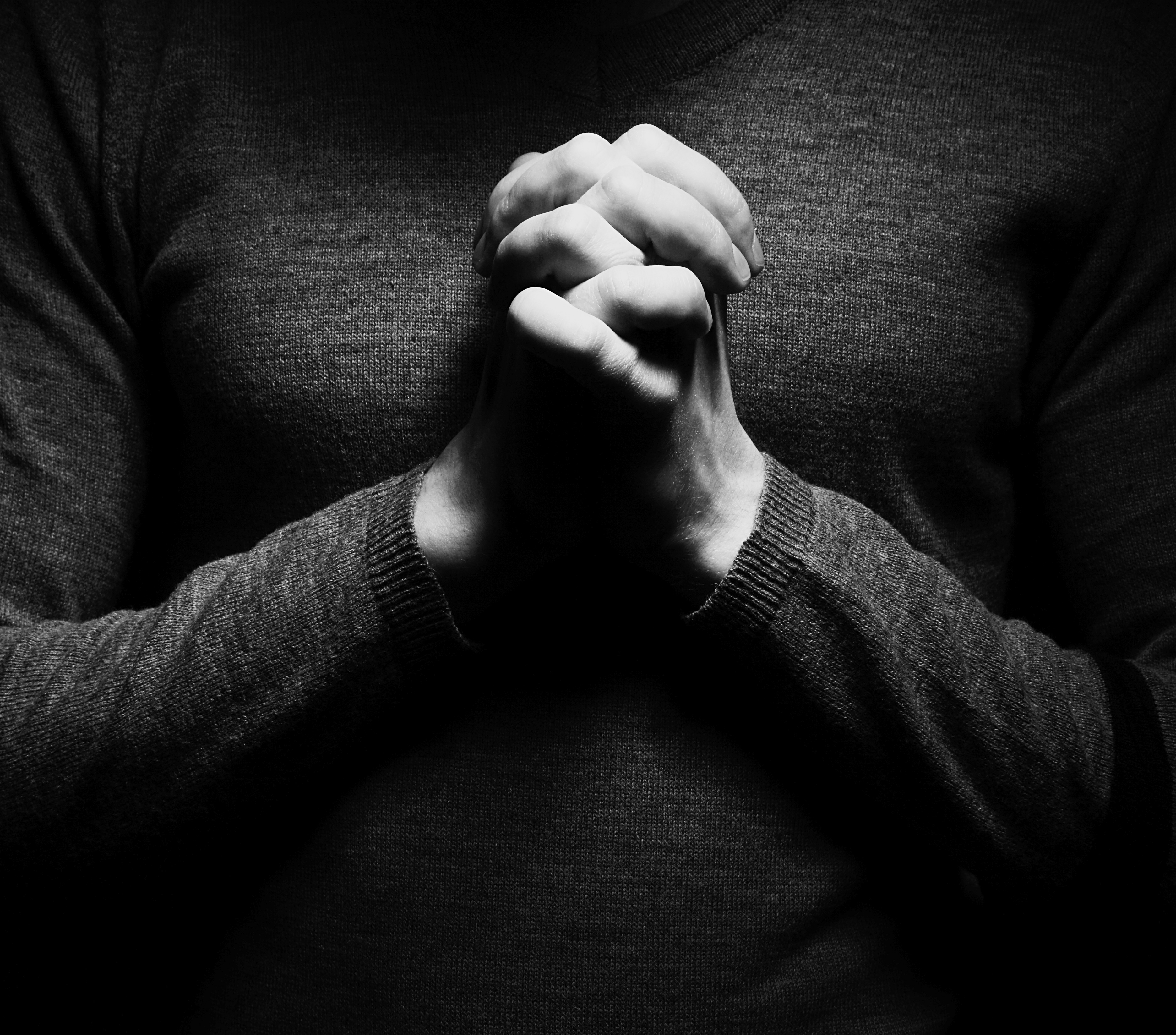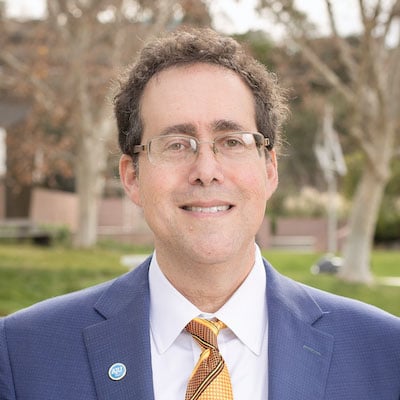
Another horrific mass shooting, this time at a high school in Florida. As has occurred each previous time, a crazed killer with an assault weapon murders more than a dozen innocent people and terrorizes hundreds more; the very people who have stifled any discussion about our addiction to accessible weapons of war, our dismantled mental health systems or our under-supported social safety nets insist that now is not the time for politicized discussions. Instead, they piously offer their sympathies and their prayers.
Always, their prayers. Even as they block any possibility of legislative redress.
Enraged victims, now even more than in the past, have taken to social media to protest: Spare us your prayers! We are way past wanting your sentiments; what we need now is action. Don’t pray — do something. There is a tidal wave of reaction against praying during these violent and troubling times. And there is, indeed, a biblical basis for that reaction: We are told that when Moses witnessed the Egyptian army assaulting the newly liberated Israelites huddled by the shores of the sea, God told Moses the very same thing: Now is not the time for prayer. Do something! Take action! Lead! Et la’asot: This is the time to act on God’s behalf (Psalm 119).
Obviously, if the victims and God both agree about the need to prioritize action, there must be something to it. We do, indeed, need to act, but that doesn’t mean there is no role for prayer. What if prayer can lead to more resilient action? What if prayer can grace us with moral clarity and with deeper courage? Perhaps prayer can forge a vessel strong enough to hold our sorrow, our rage, and our fear, to provide us with clearer access to renewed vision, hope sufficient enough to overcome society’s inertia and insanity, and to illumine pearls of insight bright enough to lure us to effective engagement. I think prayer can offer all of those benefits. Now is the time to pray and to do.
SO, WHY DO WE PRAY?
I know that not everyone is into prayer, and that’s OK. I know for myself that I’m not always able to slow down, focus and breathe life into moments of contemplation, gratitude or request. So the thoughts that follow aren’t meant to enflame resentment or guilt. They are not intended as a critique of those for whom the path of prayer isn’t accessible (or even wanted). But I do want to open the door to the possibility of the kind of praying that can lead to insight, resolution and action. I want to testify from the heart of our tradition and from the traditions of my heart. I hope that some of these echoes might find their way into your own heart and provide strength for what lies ahead.
Why pray? Sometimes I pray because my feelings are so powerful that they simply burst out of my core and require release. Prayer can be that release. All the longing, confusion, heartache and fear that bubbles up out of some deep ache, a brokenness within that reflects the shattered and brutal brokenness outside. In moments of honest feeling, when defenses fail, the protective scales fall from my eyes and the pain of injustices too long tolerated or of indignities borne sear and circumcise my heart, then all I can do in the first intensity of that pain is to cry out. That crying is prayer. It saps my strength to try to contain the rawness. Releasing it, returning it, offers liberation — reclaiming energy previously bound but now free to offer new courage, direction and determination.
Sometimes I pray because my feelings are so powerful that they simply burst out of my core and require release.
There are times when I will stand during the silent prayers, simply digging deep to find a way to ventilate my heart. Am I feeling vulnerable? I try to respond by feeling myself supported by those who love me, living and dead. Am I feeling enraged or powerless? I let myself tap into our rich tradition of protest and confronting pharaohs, our modern heroes who fought for labor, for human dignity. Their energy and passion channel the Holy One, and I feel them standing behind me, and I am strengthened.
Why pray? Because sometimes life confronts me with challenges so layered and threatening that I can’t find my way. In such moments, prayer can carve out a cistern of possibilities. Prayer can winnow and sift the overwhelming, self-contradictory harvest of what life has thrown at me, an inner process of separating wheat from chaff that enables me to notice the insights and emotions that can guide me to a productive response instead of being buffeted by the distractions of passive helplessness. Prayer can show me the way forward. Often, I emerge from prayer with clarity that had evaded me previously. I know where to stand and what must I must do. That can happen when we slow down, breathe, share our heart’s questions with the world and its Creator, and then patiently hold the space for an answer to emerge.
At home, I have a prayer stand that I use for when I pray alone. I will often clutch the sides of that stand and implore, “I don’t know how to move forward, God. Grant me the discernment to hear your lure, to follow your lead.” I’m often amazed that if I simply stand in stillness, open to receiving, I can access a sudden intuition of how to advance. Prayer keeps the communication open and reminds me to listen with an inner ear.
Why pray? Because sometimes I can’t bear to stand alone in the face of all the suffering, pain or injustice. The pain isolates. But prayer creates a community across time and space. It gives me words, already well-trodden by countless others who have come before me, and shared by so many contemporaries who also seek solace, solidarity and inspiration in their recitation. Prayer, at one and the same time, connects me to my forebears, to my community today, to similar communities around the world, and to the One whose image we are called to reflect and in whose service we thrive. In moments when it feels like I, alone, am life’s victim, as though no one else can suffer as I do, or can feel the pain I feel, prayer lifts me and places me in the context of community, connection, life. Whether I engage in wordless meditation or I allow the hallowed ancient words of the siddur (prayerbook) to flow through my lungs, mouth and soul, when I pray, I am not alone. And in that renewed web of relationship, I find myself again. We are, each of us, who we are in connection to one another.
What if prayer can lead to more resilient action? What if prayer can grace us with moral clarity and with deeper courage?
The words of the prayerbook often are framed in the plural: grant us, forgive us, show us. I love the way our tradition keeps pushing me out of the center of my own focus. No longer a solitary me, I am part of a worldwide, multigenerational us. An identity that is communal is one that repels loneliness and keeps me connected in a network of love and loyalty.
Why pray? Because sometimes I’m so broken that I no longer remember who I am. I can’t find my way back to the surface; I drift in paralyzing randomness, worn down by the rough edges of life, news or hardships. When I pray — alone or in community — I receive the gift of time, to breathe, to recalibrate, to reorient. I accept the gift of space, to stand, to sway, to rock. In prayer, the shattered fragments of my experiences, memories and responses blossom in integration and unification. I become a patterned whole once more, an integrated organism rather than a collection of separate processes at war with one another. And that integration and its possibilities extend beyond my own becoming to embrace the becomings of those praying with me. We are each of us a society, our thoughts, feelings, memories and characteristics coordinating to produce a real unity. And together in prayer (a minyan, a kehillah, a congregation) we contribute to and are absorbed by a society of societies. In one another’s integration, we achieve a deeper, higher wholeness. Prayer makes oneness manifest. Prayer reveals the One.
On days when I am so depressed that I can’t remember the sunshine or my own happiness, resting in prayer can give me some joy. Sometimes it can start as quietly as humming a nigun (a wordless song) under my breath, clapping as the spirit starts to move. Other times, a phrase in the siddur will glisten in a way that gets my attention and opens my heart. I remember to be myself, and to enjoy that, in the light of our prayers and in the act of praying.
Contemplative prayer, aided by Scripture, jolts me out of complacency and restores the priority that a Jew is a warrior for justice.
REPLENISH, RESTORE, RECOMMIT
In the end, prayer is not just the outpourings of our depth; the clarity that can emerge like a beam of light, stripping away the illusion of our solitary identity to bask in a swirling sea of connection and belonging; or the capacity to find ourselves whole yet again. It is all of these and more. Just as God is self-surpassing, prayer enables us to tap into those aspects of ourselves that can be self-surpassing, too. Just as our ancient traditions channel the wisdom of thousands of years and distill them into words that can fill our mouths and warm us in the dark, so can our prayers root us and link us and help us to stand. And most gloriously, prayer mobilizes our inferiority to face the outside. What is felt beyond us is really waiting for our touch. What happens to us can offer a more expansive reality if we rise from our prayers with different choices, new clarity and hope.
How often, in a prayerful reading of the haftarah, the prophetic verses chanted on Shabbat, do I come into contact with Israel’s most authentic ancient voice: the voice of justice, the voice that defends the widow and the orphan against the powerful and the greedy? Contemplative prayer, aided by Scripture, jolts me out of complacency and restores the priority that a Jew is a warrior for justice. We have long heard God’s voice in the requirement to love the stranger, to feed the hungry, to clothe the naked. Praying with Jews opens my eyes anew to the Jewish mandates for human dignity and for embodied compassion. Those ancient prayer texts force me to get involved.
Prayer or deed? Meditation or action? Why choose? Prayer lets us replenish, restore, recommit. And then we pray with our hands by reaching out to one another. We pray with our feet by marching and resisting and insisting. And we pray with our arms by building the world in which each and every breath is a song; each and every protest, a prayer.
Rabbi Bradley Shavit Artson holds the Abner & Roslyn Goldstine Dean’s Chair at the Ziegler School of Rabbinic Studies and is vice president of American Jewish University. He is also the founding dean of the Zacharias Frankel College at the University of Potsdam, training Conservative/Masorti rabbis for Europe.























 More news and opinions than at a Shabbat dinner, right in your inbox.
More news and opinions than at a Shabbat dinner, right in your inbox.